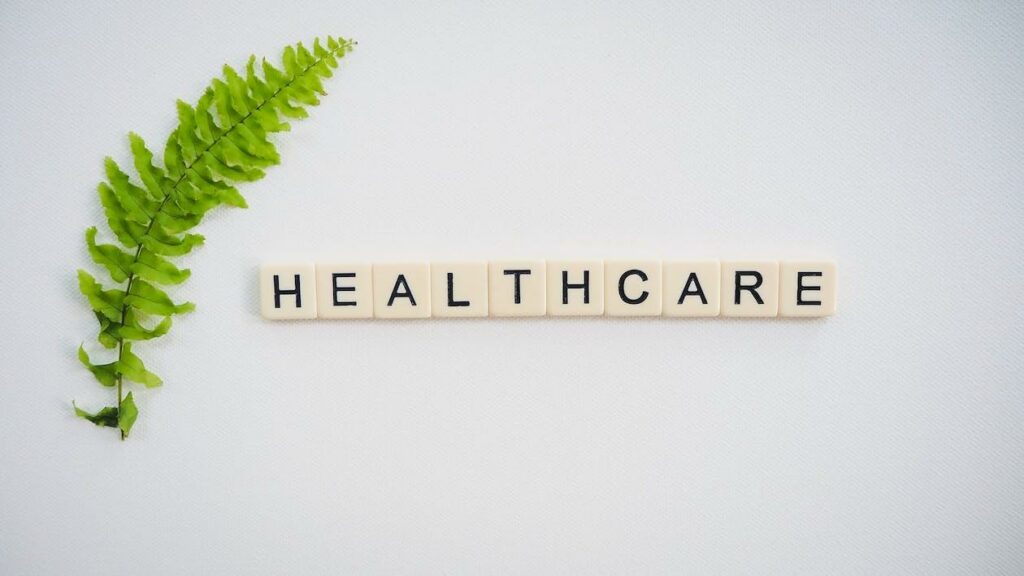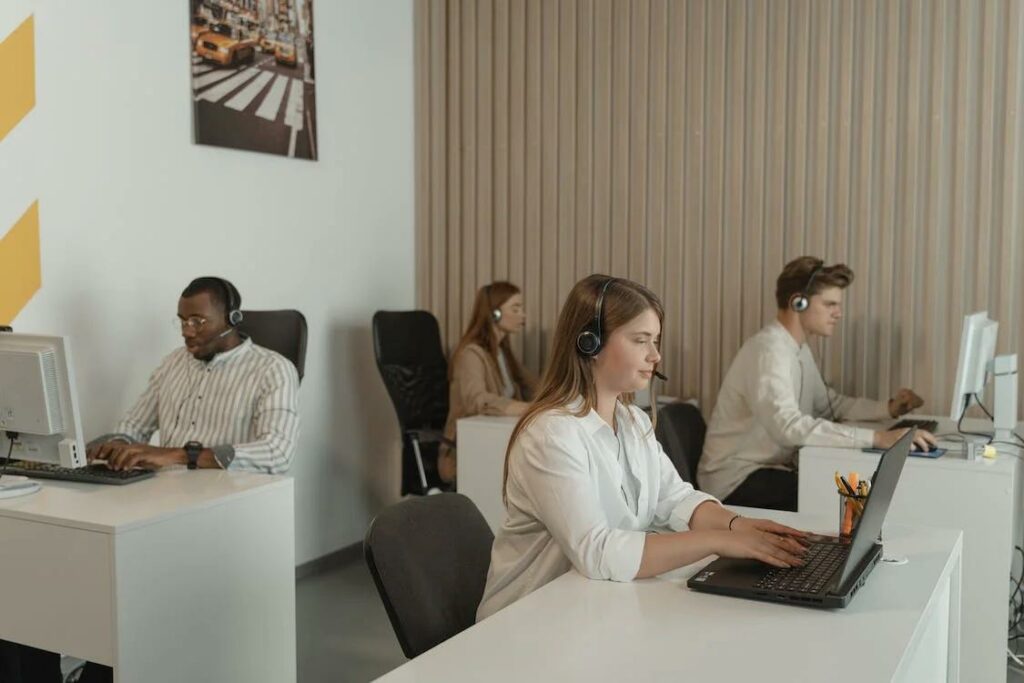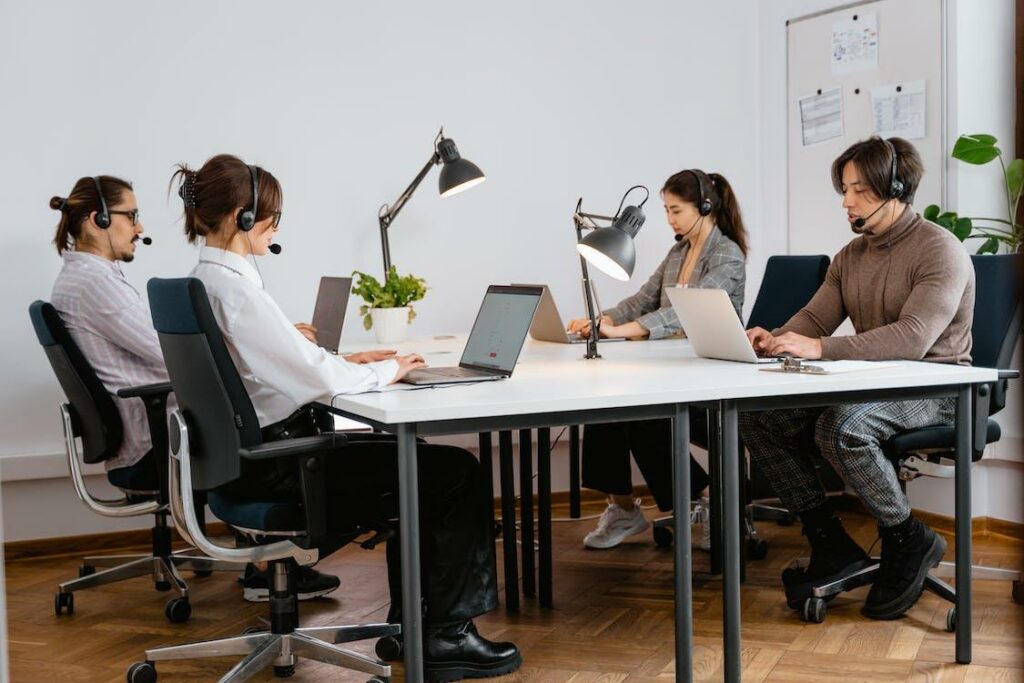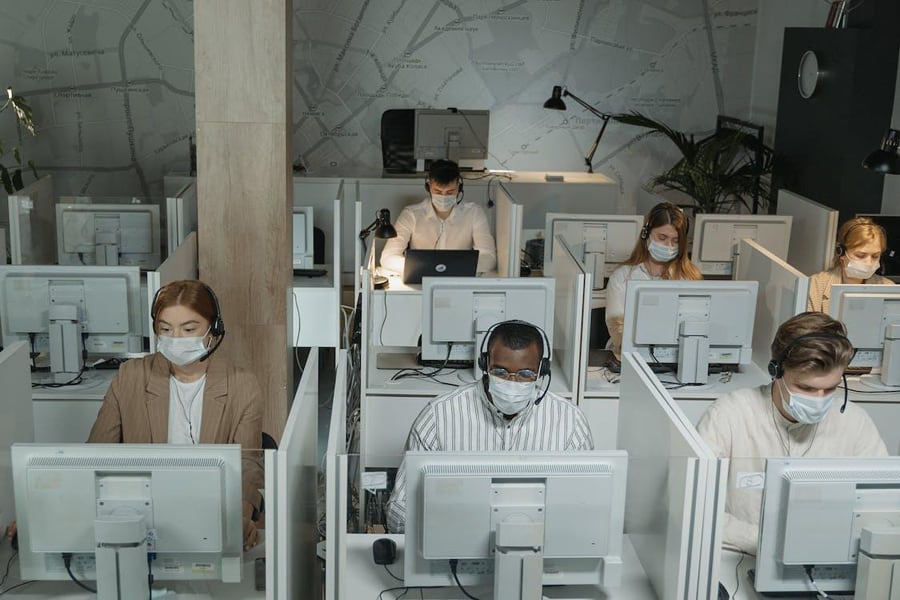
Healthcare providers can enhance their after-hours patient communication and ensure HIPAA compliance to enlist a medical office answering service equipped with secure communication tools. In the dynamic realm of healthcare, preserving patient confidentiality and ensuring data security takes precedence. At the core of this commitment stands the Health Insurance Portability and Accountability Act (HIPAA), serving as a foundational pillar in the protection of sensitive patient information. HIPAA not only sets the legal framework but also embodies the ethical responsibility of healthcare providers to safeguard the privacy of individuals.
In an era marked by technological advancements and increased connectivity, the importance of HIPAA cannot be overstated. It establishes robust standards, reinforcing the trust between patients and healthcare entities by assuring that their personal and medical data is shielded from unauthorized access, thereby upholding the integrity and ethical standards essential to quality healthcare delivery. Secure your after-hours patient communication and maintain HIPAA compliance to enlist a medical office answering service equipped with advanced technologies and protocols.
Definition and Importance of HIPAA Compliance

Overview of HIPAA Rules and Regulations
HIPAA, enacted in 1996, aims to protect individuals’ health information while allowing for the efficient exchange of electronic health data. The act comprises Privacy and Security Rules, each outlining specific guidelines for safeguarding patient information. The Privacy Rule establishes standards for protecting patients’ medical records and personal health information, while the Security Rule focuses on the electronic protection of health information.
Relevance in After-Hours Patient Communication
After-hours patient communication presents a unique set of challenges, as healthcare providers strive to balance accessibility with the imperative to protect patient privacy. HIPAA compliance extends beyond the regular office hours, emphasizing the need for secure communication channels even during times when the medical staff is not physically present. Ensuring compliance in after-hours communication becomes crucial for maintaining trust and upholding the ethical standards of patient experience.
Understanding HIPAA Guidelines for Medical Communication

Overview of HIPAA Rules and Regulations
To effectively navigate HIPAA compliance in after-hours patient communication, it is essential to understand the broader context of HIPAA guidelines. The Privacy Rule mandates the protection of individually identifiable health information, prohibiting unauthorized disclosure without patient consent. The Security Rule, on the other hand, sets standards for the secure handling of electronic protected health information (ePHI), emphasizing the implementation of safeguards to prevent data breaches.
Specific HIPAA Requirements for Phone Communication
Phone communication plays a vital role in after-hours patient interaction, and HIPAA provides specific guidelines to ensure the security of information exchanged over the phone. Healthcare providers must implement reasonable safeguards, such as password protection and encryption, to protect the confidentiality and integrity of patient data. Additionally, staff members should be trained to verify the identity of individuals before disclosing any protected health information over the phone.
Challenges in After-Hours Communication

Identifying Common Compliance Issues
After-hours communication in the healthcare sector poses a myriad of challenges that can potentially jeopardize the stringent standards set by HIPAA. One prominent challenge revolves around the risk of employing unsecured communication methods. With staff members often resorting to mobile devices or personal emails for convenience during after-hours, the vulnerability to data breaches and unauthorized access escalates. This not only raises concerns about the confidentiality of patient information but also increases the likelihood of non-compliance with HIPAA regulations.
Impact on Patient Privacy and Data Security
Failure to address compliance issues in after-hours communication can have severe consequences, negatively impacting patient privacy and data security. Unauthorized access to patient information, data breaches, and the compromise of sensitive medical details can erode patient trust and result in legal ramifications. Therefore, healthcare providers must proactively address these challenges to maintain the integrity of their patient communication practices.
Implementing HIPAA-Compliant Strategies
Best Practices for Secure Communication
To navigate the challenges of after-hours patient communication, healthcare providers can adopt several best practices to ensure HIPAA compliance. Implementing secure messaging systems, utilizing encrypted communication channels, and establishing clear protocols for verifying patient identities are essential steps. Furthermore, developing a comprehensive after-hours communication policy and providing regular training to staff members contribute to a culture of compliance within the healthcare organization.
Role of Technology in Ensuring Compliance
The pivotal role of technology in ensuring HIPAA compliance during after-hours patient communication cannot be overstated. Enlisting a medical office answering service equipped with cutting-edge secure communication tools and encrypted platforms becomes a strategic solution. These services not only facilitate seamless communication but also prioritize the confidentiality and protection of patient information. By leveraging advanced technologies, healthcare providers can ensure that sensitive data remains secure during after-hours interactions. The encryption measures employed by such services enhance the integrity of communication, offering a reliable and HIPAA-compliant means to address patient inquiries, emergencies, and other critical matters outside regular office hours. In essence, technology acts as a safeguard, enabling healthcare professionals to navigate after-hours communication challenges while upholding the highest standards of data security and compliance.
The Importance of Adhering to HIPAA in Medical Communication

HIPAA compliance transcends its role as a regulatory mandate; it is fundamentally an ethical imperative in healthcare. Safeguarding patient information during after-hours communication is more than a legal obligation—it’s an ethical responsibility vital for maintaining the trust bestowed by patients. Upholding privacy and ensuring the integrity of sensitive data are integral components of ethical healthcare practices. Adhering to HIPAA guidelines reflects a commitment to the highest standards of patient care, reinforcing the ethical foundation that forms the bedrock of the healthcare profession. In essence, it is a pledge to prioritize patients’ well-being by safeguarding their information and respecting the principles that underpin the doctor-patient relationship.
Future Trends and Developments in Patient Communication Services
As technology continues to advance, the landscape of patient communication services is evolving. Future trends may include the integration of artificial intelligence in secure messaging systems, enhanced authentication methods, and the development of more intuitive interfaces for healthcare professionals. Staying abreast of these trends will be crucial for healthcare providers aiming to continually improve their after-hours patient communication strategies while maintaining HIPAA compliance. Explore our website to know more about our services.
After-hours patient communication demands a nuanced approach to ensure both accessibility and the security of sensitive information. Adhering to HIPAA guidelines is not only a legal requirement but a commitment to the well-being and trust of patients. By implementing HIPAA-compliant strategies, leveraging technology, and enlisting the support of medical office answering services, healthcare providers can navigate the challenges of after-hours communication while prioritizing patient privacy and data security.
Frequently Asked Questions
How can healthcare providers ensure secure after-hours communication while adhering to HIPAA guidelines?
Healthcare providers can enlist the support of medical office answering services equipped with encrypted communication tools. These services act as a secure bridge, ensuring that patient information remains confidential during after-hours interactions.
What steps can be taken to address the challenge of inadequate staff training in after-hours patient communication compliance?
Comprehensive staff training programs should be implemented to educate healthcare personnel on the intricacies of after-hours communication compliance. This includes recognizing risks, understanding secure communication methods, and emphasizing the importance of safeguarding patient information.
How do medical office answering services verify patient identities during after-hours interactions to comply with HIPAA regulations?
Medical office answering services employ rigorous verification protocols, confirming patient identities before divulging any protected health information. This may involve secure authentication processes to ensure the right individuals are accessing sensitive data.
What are the potential legal and trust-related consequences of neglecting common compliance issues in after-hours patient communication?
Neglecting compliance issues can lead to legal repercussions, including fines and penalties. Moreover, it jeopardizes the trust patients place in healthcare providers, potentially damaging the reputation and integrity of the healthcare organization.
How can emerging technologies contribute to the future of after-hours patient communication services, and what trends can be anticipated?
Advancements in technology may usher in trends such as the integration of artificial intelligence in secure messaging systems and enhanced authentication methods. These innovations aim to further strengthen after-hours communication services while ensuring continued HIPAA compliance.
Featured Image Source: https://images.pexels.com/photos/2383010/pexels-photo-2383010.jpeg?auto=compress&cs=tinysrgb&w=1260&h=750&dpr=1
